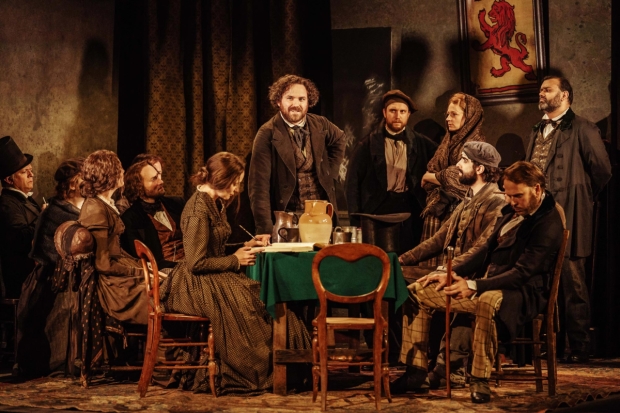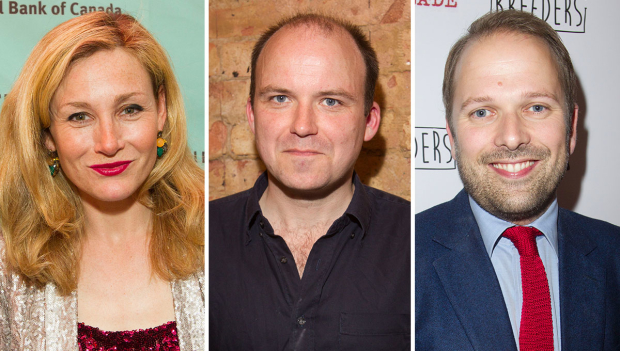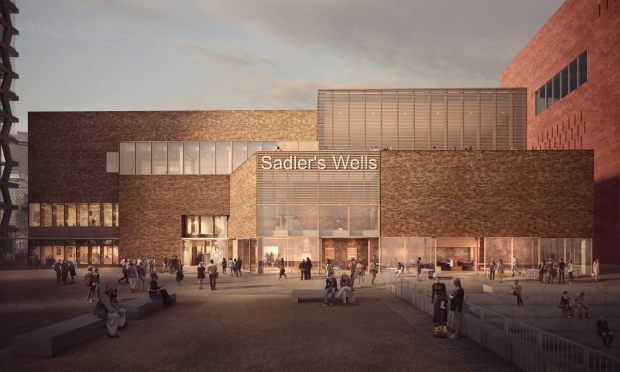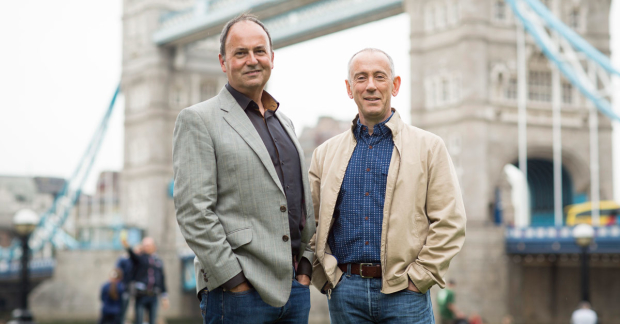Rory Kinnear: 'Acting is frustrating and elusive but I love it'
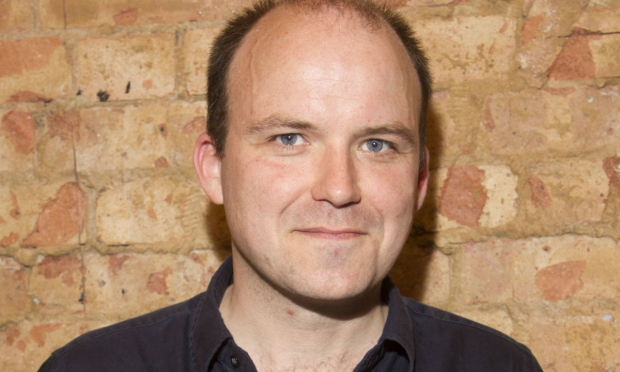
© Dan Wooller for WhatsOnStage
One of Britain’s best and brightest acting talents, Rory Kinnear has been delighting audiences on stage and screen for the last two decades, playing roles as diverse as Iago, Hamlet and M’s right-hand man in the Bond films, Bill Tanner. His work at the National Theatre has been extensive and he segues easily from straight tragedy to high comedy, as can be seen in his recent appearance in the new TV series Quacks, where he was hilarious as a rogue 19th century surgeon. His latest role is brand new, as is the theatre in which he is playing it. Nick Hytner and Nick Star’s The Bridge Theatre opens this week with Young Marx, by Richard Bean and Clive Coleman, with Kinnear in the lead role as the 32 year-old philosopher and social revolutionary. A new London theatre is always an event, and with Kinnear starring in its first play, it’s definitely not one to miss.
Had you seen the new theatre before you started rehearsing?
Yes I’ve seen it in various states of undress over the last few years. I first went round it in 2015 when it was just a hole in a big building, and we were wearing hard hats and boots. It has been fantastic to see it emerge little by little.
Does the fact that the show is the first in a new building add excitement to opening it?
Whenever you work for somewhere new, you have to work out how to play it, whether it has been there for 150 years or not. But this time it has been an unknown for us all, from Steve Tompkins the architect through to Nick Starr and Nick Hytner. There’s an expectation that it is going to be successful and a nice place to play, both for audiences and actors alike. So it will be fun to make sure that those expectations marry up. I think they will.
We all know the big bushy-bearded Karl Marx, but who is young Marx?
The basic difference is a slightly shorter beard. It’s set in 1850 so Marx is 32, and it’s been about six months to a year since he arrived in London, having been booted out of Germany, then France, then Belgium and then Germany again. London was one of the only places that was welcoming to political refugees, and there were these proto-terrorist cells which were trying to ferment insurrection and revolution across Europe, two years after the failed revolutions of 1848.
And Marx was one of these political refugees?
Yes, there was a hotchpotch of German émigré revolutionaries in London at the time. Marx is living in utter penury in Dean Street in Soho, which sounds salubrious but really wasn’t back then. Him, his wife, his two children, and their maid – who was considered very much their intellectual equal – and Engels were all hanging out in these two rooms in Soho. Young Marx is about how Marx is trying to avoid the creditors at the same time as maintaining his beliefs about what he thinks he was put on this earth for. It’s that versus whether it is right to put your family through quite so much misery.
You’re back working with Nick Hytner as director, presumably you have a great working relationship?
This is our fifth show together and after a while you get quite a decent shorthand. Nick always creates collaborative spaces for people to offer their ideas, which is how he ran the National in many ways. So it’s always a fun place to be. He doesn’t have to say much before I know what direction he wants me to be going in.
What is it about a project that gets you excited?
I don’t know really. With this it was opening a new theatre, but more importantly it was that the play itself was so rich, both in dramatic and comic potential. Getting to play a character as complicated, who is so torn himself and who veers between being likeable and unloveable was also really key. Opening the theatre was a cherry on the cake.
You seem to do about a play a year…
I get itchy if I don’t get a play for longer than 18 months. Two years is probably the longest I’ve been without one. Just because I love it. That’s why I started acting, it makes me feel 14 again. It’s the first couple of days when you come back from rehearsals and you’ve fallen in love again with acting. Obviously it then becomes frustrating and elusive and annoying as always, but it’s that coming together at the beginning of a rehearsal period and knowing what lies ahead of you.
You have Macbeth up next…
All the Shakespeares I’ve done at the National have always been a bit of a surprise. I hadn’t thought I’d play Hamlet or necessarily seen myself as one. That went for Iago as well, but Macbeth is probably the one at the back of my mind that I had wanted to play, so when Rufus asked me I wasn’t going to wait around for too long. I think that’s because I find the play so exciting to read. For some reason it has a mixed history onstage, and there’s an excitement in trying to work out how it needs to be done to make it as scary and propulsive and psychologically daunting as it is when you read it.
You directed your first opera last year, The Winter’s Tale at the Coliseum. How do you feel it went?
I loved it. I loved that it was a new opera and I was working with a composer who I knew. I was working on it on and off for about a year and a half, so because I was very green I was as prepared as possible. There’s no greater organising force than fear. Doing it at the Coliseum with a hugely experienced team behind you is a lot easier than doing it by yourself in a show above a pub. With that quality of performers they would probably have been able to do it without me.
Your father was a performer also, did he prompt your move into acting?
No, he died when I was little, so I discovered it for myself. I went to a school and people cast me in plays and say: ‘Oh you’re quite good at that and you would do it again.’ Then that continued at university. I quite liked the fun of putting on a play and I liked getting attention and the praise. I think it’s the best job in the world in terms of the collaboration and the camaraderie, the hard work and the fun and also in terms of expressing yourself and discovering other different lives. Having a chance to see different ways of existing. I still find those things just as rewarding as I did when I first started doing it.
Young Marx runs at the Bridge Theatre until 31 December.



